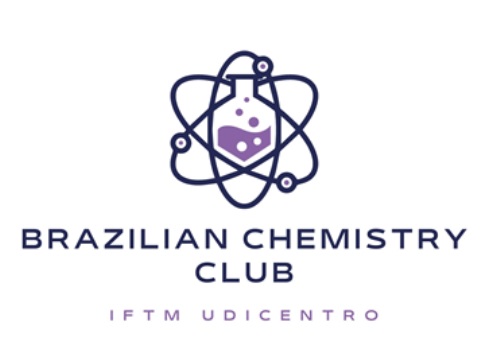
Chemistry Clubs as Pedagogical Strategies: Potentializing Learning and Teaching in a Brazilian High School
Abstract
High School Science clubs have been considered spaces of collaborative learning where curiosity and the investigative spirit are stimulated to understand students' reality. They are non-formal educational spaces that are strategically effective in the process of scientific initiation in High School. Firstly, the proposal was to start the Chemistry club at the Instituto Federal do Triângulo Mineiro-Campus Uberlândia Centro (IFTM-UDICENTRO), in Uberlândia, MG, Brazil. Secondly, it aimed to potentialize chemistry learning. The IFTM-UDICENTRO Chemistry club, whose meetings take place once a week in the afternoon, is monitored by two teaching assistants who are High School sophomores. Both improve learning on themes that result from needs, doubts, and curiosity brought up by freshmen who are members of the Chemistry club. In meetings held by the club, students ask teaching assistants questions about content taught by their chemistry teacher in traditional classes and use the opportunity to strengthen learning. The teaching assistants created an Instagram account for the club and have posted issues related to Chemistry every Wednesday. Instagram was an excellent way to bring students close to Chemistry since its posts are introduced with simple and accessible language. In short, this case study (CS) of a Brazilian Chemistry club showed that this pedagogical proposal could develop students' skills and help them learn scientific concepts and contents.
Full Text:
PDFReferences
- A. Villani, V.S. Dias, J.M. Valadares, The development of science education research in Brazil and contributions from the history and philosophy of Science, Int. J. Sci. Educ., 2010, 32, 907-937.
- A.V. Gomes, C.T.W. Rosa, M.L. Darroz, Clube de ciências decolar: da implantação à prática de atividades científicas investigativas, Ens. Tecnol. R., 2022, 6, 51-67.
- E.M. Leal, L.M.F. Gomes, R.R. Pires, S.F.P. Pereira, R.A. Costa, A.M.F. Sousa, P.M.S. Junior, C.S. Silva, H.C. Costa, Everyday actions in science teaching: a case study in public and private school, Res. Soc. Develop., 2022, 11, e56111536899.
- K. Adu-Gyamfi, lack of interest in school science among non-science students at the senior high school level, Prob. Educ. 21st Cent., 2013, 53,
-21.
- G.R. Gonzaga, D.C. Paiva, M.L. Eichler, Desafios e perspectivas atuais na formação do professor de química: expectativas sobre o mestrado profissional em química em rede nacional (PROFQUI), Quim. Nova., 2020, 43, 493-505.
- E.B. Filho, L.A. Gomes, J.M.S. Maia, G.M.R. Martins, C.F.S. Barreto, Clube de ciências: a importância da extensão universitária na formação docente de graduandos de licenciatura em química, Rev. Ext. Cult., 2020, 4, 61-75.
- D. Tomio, A.P. Hermann, Mapeamento dos clubes de ciências da América Latina e construção do site da rede internacional de clubes de ciência, Pesq. Educ. Ciênc., 2019, 21, e10483.
- M. Behrendt, Examination of a successful and active science club: a case study, Winter, 2017, 25, 82-87.
- B. Aidoo, S.K. Boateng, P.S. Kissi, I. Ofori, Effect of problem-based learning on students' achievement in chemistry, J. Educ. Pract., 2016, 33, 103-108.
- F.M. Bernardi, M.S. Pazinato, O estudo de caso no ensino de química: um panorama das pesquisas na área, Rev. Ins. Sci., 2022, 5,
-236.
- C.A. Dewi, S. Rahayu, I.W. Dasna, Case-based learning (CBL) in chemistry learning: a systematic review, J. Penel. Pend., 2022, 8,
-2230.
- N.P.R. Sousa, R.H.O. Viana, G. Ferreira, L.C. Nogueira, Clube de ciências: um olhar a partir das teses e dissertações brasileiras, REAMEC, 2021, 9, e21079.
- N.M. Karkaz, Z.K. Ellala, The effectiveness of science club in the creative skills of students in the elementary grades, Int. J. Educ. Psych. Studies, 2017, 1, 72-95.
- A.M.M. Dantas, V.P. Soares, E.J.L. Toledo, Clube de ciências remoto: proposta motivadora em tempo de pandemia, Rev. Exitus, 2022, 12,
-25.
- A. Lacey, The chemical club: an early nineteenth-century scientific dining club, AMBIX, 2017, 64, 263-282.
- P. Hidayat, I. Megawati, Penanaman kreativitas di ekstrakurikuler science club SD Muhammadiyah Pakel program plus, Trihayu:
J. Pendidikan Ke-SD-an, 2023, 9, 116-130.
- B.D. Rodrigues, J.M.S. Malheiro, A escrita e o desenho na promoção de aprendizagens em um clube de ciências, Ciênc. & Educ., 2023, 29, e23019.
- C. Wegner, N. Issak, K. Tesch, C. Zehne, Science club-a concept, Eur. J. Sci. Math. Educ., 2016, 4, 413-417.
- P. Mupa, T.I. Chinooneka, Factors contributing to ineffective teaching and learning in primary school: why are schools in decadence?, J. Educ. Pract., 2015, 6, 125-132.
- P. Buckley, P. Lee, The impact of extra-curricular activity on the student experience, Act. Learn. High Educ., 2021, 22, 37-48.
- A. Magaji, G. Ade-Ojo, D. Bijlhout, The impact of after-school science club on the learning progress and attainment of students, Int. J. Instruct., 2022, 15, 171-190.
- A.I. Borges, M.L.D. Miranda, The role of chemistry in environmental education: learning and constructing knowledge through research in high school, Indonesian J. Educ. Res. Rev., 2022, 5, 460-468.
DOI: http://dx.doi.org/10.13171/mjc02401031755miranda
Refbacks
- There are currently no refbacks.
Copyright (c) 2024 Mediterranean Journal of Chemistry
